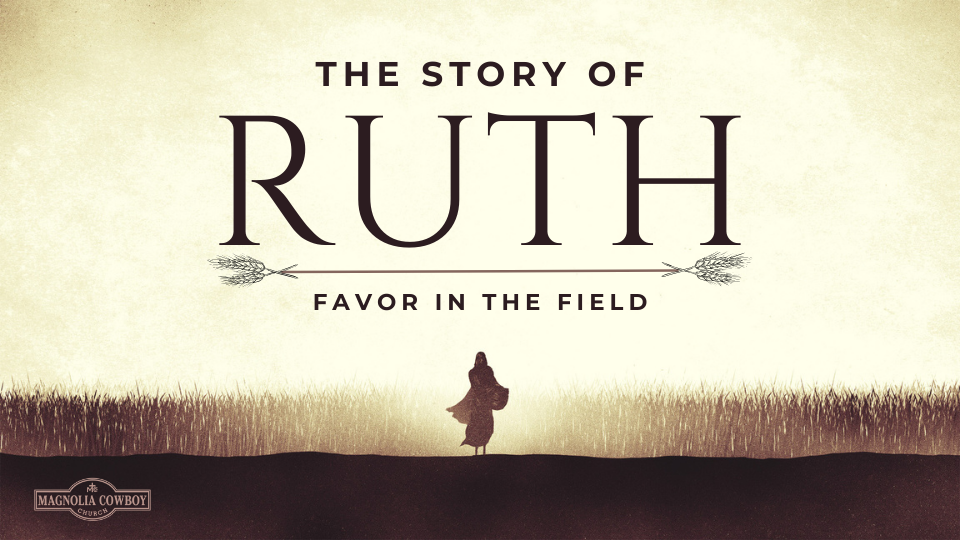Finding God's Provision in Unexpected Places


In the midst of life's most challenging seasons, it can be difficult to see God's hand at work. When resources are scarce, relationships are strained, and the future seems uncertain, we often wonder if God has forgotten us. The story of Ruth offers powerful insights into how God provides for His people, even when circumstances appear hopeless.
Who Was Ruth and Why Does Her Story Matter?
Ruth was a Moabite woman who married into an Israelite family that had moved to Moab during a famine. After her husband died, Ruth made the remarkable decision to leave her homeland and follow her mother-in-law Naomi back to Bethlehem. As foreigners and widows, both women faced significant challenges - no income, no property, and limited social standing.
Ruth's declaration to Naomi was extraordinary: "Where you go, I will go. Your people will be my people, and your God will be my God." She abandoned everything familiar to follow Naomi and the God of Israel, demonstrating remarkable faith and loyalty.
How Does God Work Behind the Scenes in Our Lives?
As Ruth and Naomi arrived in Bethlehem, they had no idea what God was orchestrating. The text tells us that "as it turned out," Ruth found herself working in a field belonging to Boaz, a wealthy relative of Naomi's late husband. This wasn't mere coincidence - it was divine providence.
God often works this way in our lives too. When we think there's no possible way forward, when provision seems impossible, God is already arranging circumstances for our good and His glory. Ruth didn't randomly select Boaz's field - God guided her there because He had a plan.
The timing was also perfect - they returned at harvest time when gleaning was possible. God's timing is always perfect, even when it doesn't align with our preferred schedule.
What Does It Mean to Find Favor with God?
When Boaz noticed Ruth, he immediately showed her extraordinary kindness:
He provided for her by allowing her to glean in his fields
He protected her by instructing his men not to harass her
He honored her by inviting her to eat with the harvesters
He blessed her abundantly by instructing workers to intentionally drop extra grain for her
Ruth was astonished by this treatment, asking, "What have I done to deserve such kindness? I'm only a foreigner." This question echoes what we might ask God: "Why would you show me such favor when I don't deserve it?"
Boaz's response reveals that he recognized Ruth's character and faith: "I know everything you have done for your mother-in-law since your husband's death. I know how you left your homeland to come to a foreign land."
How Does God Provide When Resources Seem Scarce?
The provision Ruth received was extraordinary. She returned home with an ephah of barley (about 30-50 pounds) - the equivalent of a month's wages earned in a single day. Naomi, who had declared herself "bitter" and abandoned by God, suddenly saw tangible evidence of God's provision.
This abundance wasn't just coincidence. God had established a system in Israel where the corners of fields were left unharvested for the poor and foreigners. Even in her poverty, Ruth found herself in a position to receive overwhelming blessing.
When Naomi learned that Ruth had been working in Boaz's field, she immediately recognized God's hand: "May the Lord bless him! He is showing his kindness to us as well as to your dead husband. That man is one of our closest relatives, one of our family redeemers."
What Does It Mean That God Doesn't Forget His Promises?
Naomi had forgotten about God's provision. She had forgotten about the clan system that God established to care for widows. She had forgotten about family redeemers who could restore property and provide for relatives.
But God hadn't forgotten.
The story reminds us that even when we forget God's promises, He remains faithful. Naomi thought she had nothing, but God was working to restore everything she had lost - and more.
Boaz, as a kinsman-redeemer, represents how God reaches out to those who don't deserve His love. Ruth represents us - foreigners to God's kingdom who receive unmerited grace and provision.
Life Application
The story of Ruth challenges us to trust God's provision even when we can't see it working. Here are some practical ways to apply these lessons:
Let go of what you're holding onto that God may be asking you to release. Sometimes we cling to things that prevent us from receiving what God wants to give us.
Trust God's timing. When you feel like you're running out of resources before you run out of month, remember that God's provision often comes at the moment of greatest need.
Remember that "But God" can change everything. When circumstances seem impossible, God can intervene in ways we never imagined.
Look for God's hand in "coincidences." What appears random may actually be divine orchestration.
Ask yourself:
What am I trying to control that I need to surrender to God?
Where have I forgotten God's promises in my life?
Am I looking at my circumstances through eyes of bitterness like Naomi, or faith like Ruth?
How might God be working behind the scenes in my current challenges?
Remember, when you feel like you're at the end of your resources, you're just at the beginning of God's. Like Ruth, you may find yourself carrying home more blessing than you can imagine when you trust the God of the harvest.